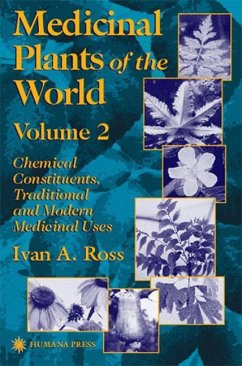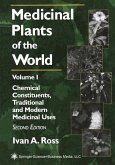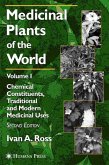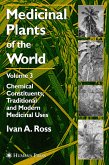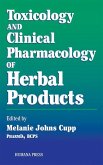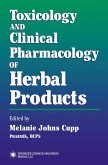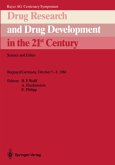An extraordinary compendium of information on herbal medicine, Medicinal Plants of the World, Volume 2 comprehensively documents the medicinal value of twenty-four major plants species widely used around the world in medical formulations. The book's exhaustive summary of available scientific data for the plants provides detailed information on how each plant is used in different countries, describing both traditional therapeutic applications and what is known from its use in clinical trials. A comprehensive bibliography of over 3000 references cites the literature available from a wide range of disciplines. This book offers an unprecedented collection of vital scientific information for pharmacologists, herbal medicine practitioners, drug developers, medicinal chemists, phytochemists, toxicologists, and researchers who want to explore the use of plant materials for medicinal and related purposes.
"...an invaluable resource that will become a critical reference to a great diversity of specialists in the fields of public health, chemistry, phytomedicine, ethnobotany, toxicology, and botany." -Journal of Natural Products
"No library can be without [it] and no specialist can do without consulting [it]."
-American Scientist
"...will certainly be consulted by physicians, pharmacists, and herbal healers..."
-New Phytologist
"...this volume belongs on the shelves of medical and botanical libraries. Large public libraries and academic libraries...may also want to consider it."
-Booklist - Reference Books Bulletin"This two-volume work (the first appearing in 1999, the second in 2001) is a veritable compendium on 50 medicinal plants of the world. Gleaned from over 4,700 literature sources, Medicinal Plants of the World will appeal to professionals in medicine, pharmacology, and herbal practice. The author, a biologist, selected species of plants based on consumer interest, available data, and level of use in developing countries. . .Compiling such a vast amount of information from an extensive pool of literature was certainly a labor of love and an abiding service for researchers. We only hope that future volumes will appear. An encyclopedic work of lasting utility, Medicinal Plants of the World is recommended for public, academic, medical, and research libraries."-E-streams Electronic Book Reviews
Review of Volume 1:_
"This book is a wonderful contribution to the knowledge of medicinal plants of the world. . .Mr. Ross is to be congratulated and complimented for such a well-done book. It is an invaluable resource that will become a critical reference to a great diversity of specialists in the fields of public health, chemistry, phytomedicine, ethnobotany, toxicology, and botany."-Journal of Natural Products
"The editor has neatly merged diffuse knowledge from a complex field to provide an educational resource pertinent to researchers, drug developers, and pharmaceutical and clinical services. . .an interesting introduction to the intriguing field of ethnopharmacology and traditional medicine."-Doody's Health Sciences Book Review Journal
"Ivan A. Ross, a biologist who has done toxicology research for the U.S. Food and Drug Administration, created quite a stir with the extensive research and painstaking documentation that characterized the first volume in this series. The second volume is no less impressive in scope or detail, and contains a number of helpful additions that improve its function as a reference tool." - Medic al Reference Services Quarterly
"This volume offers an unprecedented collection of vital scientific information for pharmacologists, herbal medicine practioners, drug developers, phytochemists, medicinal chemists, phytologists, toxicologists, and researchers who want to explore the use of little-known information about these plants and open appication horizons for the many novel drugs and drug candidates found in them." -Acta Botanica Hungarica
"...Recommended for large public libraries, as well as college and university libraries." - American Reference Books Annual
"No library can be without [it] and no specialist can do without consulting [it]."
-American Scientist
"...will certainly be consulted by physicians, pharmacists, and herbal healers..."
-New Phytologist
"...this volume belongs on the shelves of medical and botanical libraries. Large public libraries and academic libraries...may also want to consider it."
-Booklist - Reference Books Bulletin"This two-volume work (the first appearing in 1999, the second in 2001) is a veritable compendium on 50 medicinal plants of the world. Gleaned from over 4,700 literature sources, Medicinal Plants of the World will appeal to professionals in medicine, pharmacology, and herbal practice. The author, a biologist, selected species of plants based on consumer interest, available data, and level of use in developing countries. . .Compiling such a vast amount of information from an extensive pool of literature was certainly a labor of love and an abiding service for researchers. We only hope that future volumes will appear. An encyclopedic work of lasting utility, Medicinal Plants of the World is recommended for public, academic, medical, and research libraries."-E-streams Electronic Book Reviews
Review of Volume 1:_
"This book is a wonderful contribution to the knowledge of medicinal plants of the world. . .Mr. Ross is to be congratulated and complimented for such a well-done book. It is an invaluable resource that will become a critical reference to a great diversity of specialists in the fields of public health, chemistry, phytomedicine, ethnobotany, toxicology, and botany."-Journal of Natural Products
"The editor has neatly merged diffuse knowledge from a complex field to provide an educational resource pertinent to researchers, drug developers, and pharmaceutical and clinical services. . .an interesting introduction to the intriguing field of ethnopharmacology and traditional medicine."-Doody's Health Sciences Book Review Journal
"Ivan A. Ross, a biologist who has done toxicology research for the U.S. Food and Drug Administration, created quite a stir with the extensive research and painstaking documentation that characterized the first volume in this series. The second volume is no less impressive in scope or detail, and contains a number of helpful additions that improve its function as a reference tool." - Medic al Reference Services Quarterly
"This volume offers an unprecedented collection of vital scientific information for pharmacologists, herbal medicine practioners, drug developers, phytochemists, medicinal chemists, phytologists, toxicologists, and researchers who want to explore the use of little-known information about these plants and open appication horizons for the many novel drugs and drug candidates found in them." -Acta Botanica Hungarica
"...Recommended for large public libraries, as well as college and university libraries." - American Reference Books Annual
"This book is a wonderful contribution to the knowledge of medicinal plants of the world. . .Mr. Ross is to be congratulated and complimented for such a well-done book. It is an invaluable resource that will become a critical reference to a great diversity of specialists in the fields of public health, chemistry, phytomedicine, ethnobotany, toxicology, and botany." -Journal of Natural Products
"The editor has neatly merged diffuse knowledge from a complex field to provide an educational resource pertinent to researchers, drug developers, and pharmaceutical and clinical services. . .an interesting introduction to the intriguing field of ethnopharmacology and traditional medicine." -Doody's Health Sciences Book Review Journal
"There is also a useful glossary towards the end of the book that provides definitions of botanical, chemical and medicinal terms used in the text. These features will make the book very easy to consult by specialists with a wide range of interests...The species selected for inclusion contain some well known medicinal plants, such as Catharanthus roseus and Aloe vera, several species better-known for their fruits such as avocado, annona, guava, mango, papaya, pomegranate and tamarind, the spice turmeric, the vegetable cassava and Mamordica charantia the bitter gourd, lemon grass, the tropical weedy species Cassia alata, and some well known poisonous plants such as Abrus precatorius, Fatropha curcas and Lantana camara...a useful compilation of information about some economically important species...will certainly be consulted by physicians, pharmacists and herbal healers, but should also appeal to ethnobotanists, economic botanists and plant chemists. I am sure that I will be referring back to it from time to time." -New Phytologist
"The key features of the book are its exhaustive yet concise presentation of scientific plant-use data from many sources, a wealth of practical ideas and theoretical information that suggests new opportunities for further studies, detailed information about the uses of each plant in different countries, extensive presentation of pharmacological effects and clinical trials, identification of the chemical constituents of each plant, complete cross-referencing of common names to country and scientific name, a comprehensive index that includes significant terms, symptoms, and treatments, and extensive references to chemical constituents." -Journal of Medicinal Chemistry
"The editor has neatly merged diffuse knowledge from a complex field to provide an educational resource pertinent to researchers, drug developers, and pharmaceutical and clinical services. . .an interesting introduction to the intriguing field of ethnopharmacology and traditional medicine." -Doody's Health Sciences Book Review Journal
"There is also a useful glossary towards the end of the book that provides definitions of botanical, chemical and medicinal terms used in the text. These features will make the book very easy to consult by specialists with a wide range of interests...The species selected for inclusion contain some well known medicinal plants, such as Catharanthus roseus and Aloe vera, several species better-known for their fruits such as avocado, annona, guava, mango, papaya, pomegranate and tamarind, the spice turmeric, the vegetable cassava and Mamordica charantia the bitter gourd, lemon grass, the tropical weedy species Cassia alata, and some well known poisonous plants such as Abrus precatorius, Fatropha curcas and Lantana camara...a useful compilation of information about some economically important species...will certainly be consulted by physicians, pharmacists and herbal healers, but should also appeal to ethnobotanists, economic botanists and plant chemists. I am sure that I will be referring back to it from time to time." -New Phytologist
"The key features of the book are its exhaustive yet concise presentation of scientific plant-use data from many sources, a wealth of practical ideas and theoretical information that suggests new opportunities for further studies, detailed information about the uses of each plant in different countries, extensive presentation of pharmacological effects and clinical trials, identification of the chemical constituents of each plant, complete cross-referencing of common names to country and scientific name, a comprehensive index that includes significant terms, symptoms, and treatments, and extensive references to chemical constituents." -Journal of Medicinal Chemistry

